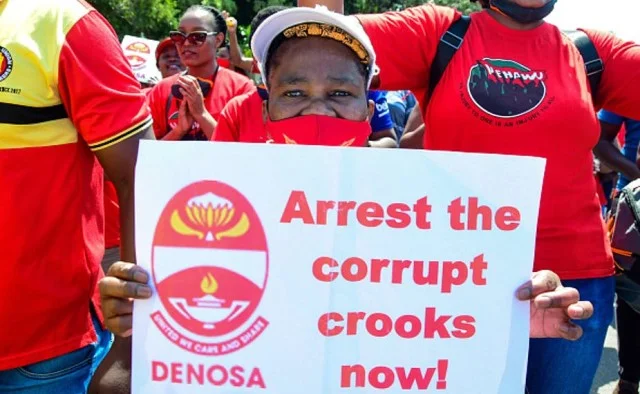Corruption has insidiously woven itself into the fabric of governance in South Africa. A tumultuous saga, it encapsulates a labyrinth of scandals, reforms, and debates surrounding accountability. This complex phenomenon transcends mere legal infractions; it facilitates profound inquiries into the cultural dimensions that underpin governance practices. To comprehensively understand corruption in the South African context, one must examine the intricate interplay of historical, social, and political factors, scrutinizing this issue through a lens of cultural relativism.
The historical backdrop of South African governance is marked by deeply entrenched systemic inequities, a legacy of apartheid that erected barriers not only to justice but also to equitable resource distribution. In such an environment, the normalization of corrupt practices can be interpreted as a response to both collective disenfranchisement and individual survival tactics. Consequently, corruption must be viewed not solely as a deviation from ethical conduct but as a reflection of societal norms that have, over time, coalesced around survivalism and opportunism.
Scandals that have emerged in recent decades illustrate the multidimensional aspects of corruption. One notable instance is the infamous “State Capture” saga, which implicated high-ranking officials and business moguls in a web of malfeasance that undermined state institutions. Critical examinations of this scandal reveal that beyond the actions of individuals, it represents a broader critique of a political culture that oscillates between patronage and nepotism. The fluidity in these practices questions the moral compass of governance and raises substantial concerns regarding the implications for democratic engagement.
Moreover, the infamous arms deal of the late 1990s marks another pivotal moment in South Africa’s corruption history. Investigations revealed irregularities and unethical conduct that grossly deviated from the principles of transparency and accountability. In retrospect, this scandal illustrates how entrenched interests can manipulate state apparatus for personal gain, resulting in a pronounced disillusionment among the populace. Such episodes contribute to a pervasive atmosphere of cynicism regarding political institutions, thereby eroding public trust.
In the wake of these scandals, numerous reforms have been proposed and implemented, each aiming to mitigate the pervasive nature of corruption. The establishment of the Public Protector’s office in 1994 was heralded as a significant step toward enhancing state accountability. However, the effectiveness of such institutions has been variably critiqued. Often, these bodies find themselves ensnared in political machinations, reflecting the difficulties associated with enforcing accountability within a compromised institutional framework.
Furthermore, legislation aimed at combatting corruption—such as the Prevention and Combating of Corrupt Activities Act—has been enacted, though the practical outcomes remain mixed. The gap between legislative intent and actual enforcement raises crucial questions about the efficacy of such measures. This disjunction underlines a critical point: legislation alone is insufficient in the absence of a concomitant cultural shift towards integrity and collective responsibility.
The dynamics of accountability also demand scrutiny. Cultural relativism provides an essential framework for understanding why accountability measures often falter. In many instances, accountability is perceived through a lens of cultural norms; thus, what may be deemed corrupt in one context could be acceptable in another. This cultural dissonance creates barriers to the universal application of anti-corruption norms, complicating the landscape where local customs intersect with global governance standards.
Additionally, the media plays a pivotal role as both a watchdog and a convener of public discourse. Investigative journalism has uncovered numerous abuses of power and, in doing so, has galvanized civil society action. However, the concept of ‘media capture’ raises concerns about whether the mechanisms supposed to ensure accountability can themselves be corrupted. This duality informs a broader understanding of how misinformation and sensationalism can distort public perception and undermine legitimate accountability efforts.
Interestingly, the role of civil society in combating corruption has emerged as a vital component of reform discourse. Non-governmental organizations (NGOs) and community activism have played an instrumental role in advocating for transparency and governmental accountability. The burgeoning movement towards citizen engagement reflects a significant cultural shift, suggesting that a robust civil society can serve as a counterbalance to entrenched corruption.
Nonetheless, the journey towards rectifying the systemic corruption endemic in South African governance remains fraught with challenges. The reconciliation between cultural practices and the quest for ethical standards introduces an inherent tension. The necessity for culturally relevant, yet universally applicable, frameworks calls for nuanced discourse that respects local contexts while striving for overarching ethical consistency.
Ultimately, addressing corruption in South Africa’s government demands an integrative approach that marries legal, cultural, and societal perspectives. In calibrating reforms, it becomes essential to engage with the historical legacies that inform contemporary practices. An understanding of the cultural stratifications that perpetuate corrupt activity may pave the way for holistic solutions that resonate with the broader populace.
In summary, the panorama of corruption in South Africa is not merely a catalog of scandals or a series of legislative pursuits. Instead, it represents a complex interplay of historical injustices, cultural norms, and ongoing struggles for accountability within an often capricious political landscape. The path forward requires an unwavering commitment to fostering a culture of integrity, transparency, and civic responsibility—all vital to reclaiming the promise of democratic governance and communal trust.
